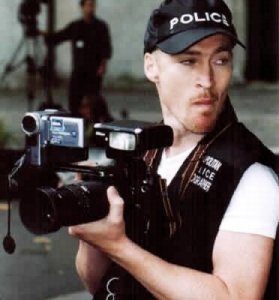Applied to the whole of the UK by the Counter-Terrorism Act 2008, the offence of eliciting ‘terrorist information’ about security forces and the equally controversial (but not yet in force) power to seize anything for examination were previously restricted to Northern Ireland, where they expired on 31st August last year – see Terrorism Act 2000 Sections 88 & 103 for the predecessors of Sections 1 and 58A, respectively.
They’d already been through various revisions before that, with the power to examine documents first appeared as Section 22 of Northern Ireland (Emergency Provisions) Act 1991, a relative newcomer compared to the elicit offence, which is rooted in Regulation 10 of the Civil Authorities (Special Powers) Act (Northern Ireland) 1922:
No person shall, without lawful authority, collect, record, publish or communicate, or attempt to elicit, any information with respect to the movement, numbers, description, condition, or disposition of any police force, or with respect to the plans or conduct, or supposed plans or conduct, of any operations by any such force, or any information of such a nature as is calculated to be or might be directly or indirectly useful to persons hostile or opposed to the preservation of the peace or maintenance of order, and if any person contravenes the provisions of this regulation, or without lawful authority or excuse has in his possession any document containing any such information as aforesaid, he shall be guilty of an offence against these regulations.
Regulation 12 also seems familiar:
If any person, without lawful authority or excuse, uses or has in his possession or under his control any cipher, code, or other means adapted for secretly communicating information which may be prejudicial to the preservation of peace or the maintenance of order he shall be guity of an offence against these regulations, unless he proves that the cipher, code, or other means of secret communication is intended and used solely for commercial or other legitimate purposes. Any person who has in his possession or under his control any cipher, code, or other means of secret communication shall, if required by the civil authority, or any person authorised by him, or by any police constable, supply the key or other means for deciphering it, and if he fails to do so shall be guilty of an offence against these regulations.
Still, nothing to hide, nothing to fear, it’s not like any police officer would ever just make up a reason to seize ‘evidence’, would they?
And perhaps the Met were on to something with those posters after all, some photographers do seem odd:
Best keep an eye on those ones. There is a war on, you know!


Film of Mark Thomas interview at the NUJ/BJP event at Scotland Yard, featuring ‘that’ spotter card. http://london.indymedia.org.uk/videos/718
LikeLike
Your link from police officers ‘just making up’ evidence is to an article about the use of the sexual offences act. This was apparently used to force a photographer to delete innocent images taken in a public place. Coincidentally, I was once threatened with arrest under the sexual offences act, when a FIT officer accused me of photographing children. The said children just happened to be in the background when I was taking pictures of the FIT copper. He was well aware I was focused only on photographing him, and had not even noticed the children, but that did not stop him attempting to misuse legislation in a way that suited him.Which is why people are so worried about this s76 thing. Police frequently exploit and misuse the law, and an acquittal in court (if it gets that far) does not make up for the loss of liberty / inconvenience suffered in the process.
LikeLike